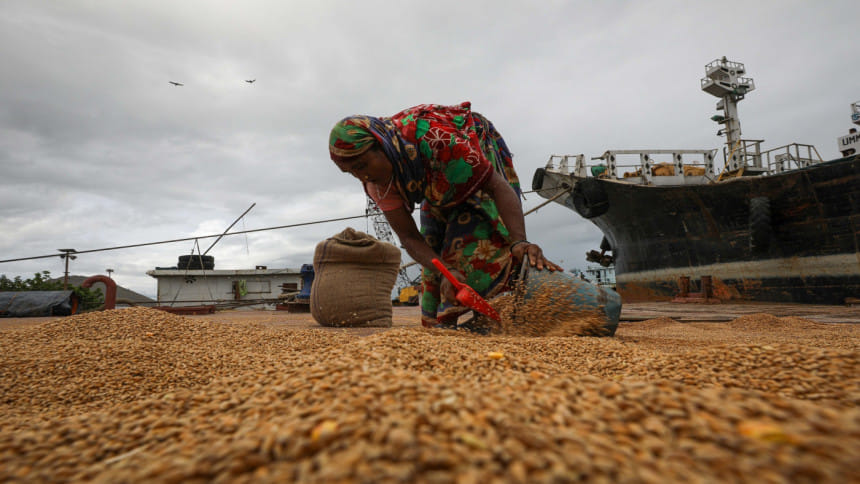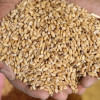Three crises converge to unsettle flour market

Flour prices have gone up at both wholesale and retail markets in Dhaka in the span of a week due to tight supply amid higher prices of wheat, the key raw material, on the international market.
Retailers and wholesalers claimed that refiners and dealers could not import wheat as required due to the prevailing shortage of US dollars, which created a further rift between demand and supply.
The Red Sea impasse has also contributed to the price hike, according to an importer.
Given these circumstances, millers called to adjust the price of the flour.
Packaged flour is currently selling at Tk 55 to Tk 65 per kilogramme (kg), compared to Tk 55 to Tk 60 per kg a week ago, according to data compiled by state-run Trading Corporation of Bangladesh.
On the other hand, loose refined flour is currently selling at Tk 65 to Tk 70 per kg, compared to Tk 60 to Tk 70 per kg a week ago, the data showed.
In the past week, the price of packaged flour has increased by 4.35 percent per kg and loose refined flour by 3.85 percent per kg, according to the data.
Anisur Rahman, a resident of the Pallabi Extension area of Mirpur in the capital, said that the increase in prices of daily commodities had become unbearable.
"Is there no one in the government to look after the interests of the common people?" he questioned.
Abul Hossain, a wholesaler at Laksam General Store in Karwan Bazar, one of the biggest kitchen markets in the capital, said prices of the wheat, the second most-consumed grain in Bangladesh, rose last week due to a supply shortage.
Around that time, the price of each sack (50 kg) of flour increased from Tk 3,200 to Tk 3,250, he said, adding that price of lower quality flour had increased from Tk 2,700 to Tk 2,750.
He said that supply was gradually getting better, expressing optimism that prices would start to come down.
The price of flour has been fluctuating for almost two years as it is dependent on the import of wheat.
Bangladesh's annual demand for wheat is 70-75 lakh tonnes, 85 per cent of which is met through imports, according to industry insiders.
Taslim Shahriar, senior assistant general manager at Meghna Group of Industries, one of the biggest commodity importers and processors, said wheat prices had soared in the international market.
He added that global shipping companies are rerouting vessels around Africa's Cape of Good Hope to avoid the Red Sea in the face of attacks from Yemen's Houthi rebels. As a result, the shipping time has increased by more than 10 days, raising freight costs.
He said the price of wheat had increased by $20 to $30 per tonne, or by Tk 5-10 per kg.
He also believed that letters of credit for wheat import were not being opened in line with demand due to the prevailing dollar shortage, which is another reason for the price hike.
Bangladesh's foreign exchange reserves fell to $20.38 billion on January 9 after the central bank settled import bills of the last two months through Asian Clearing Union.
Bangladesh's foreign exchange reserves have been the subject of intense attention in the face of a gradual fall over the last two years as its obligation for international payments continued to remain above inflows.
Recent data also shows that the local currency, taka, has depreciated by about 28 percent since January last year due to higher foreign currency outflow and lower inflow.

 For all latest news, follow The Daily Star's Google News channel.
For all latest news, follow The Daily Star's Google News channel. 








Comments